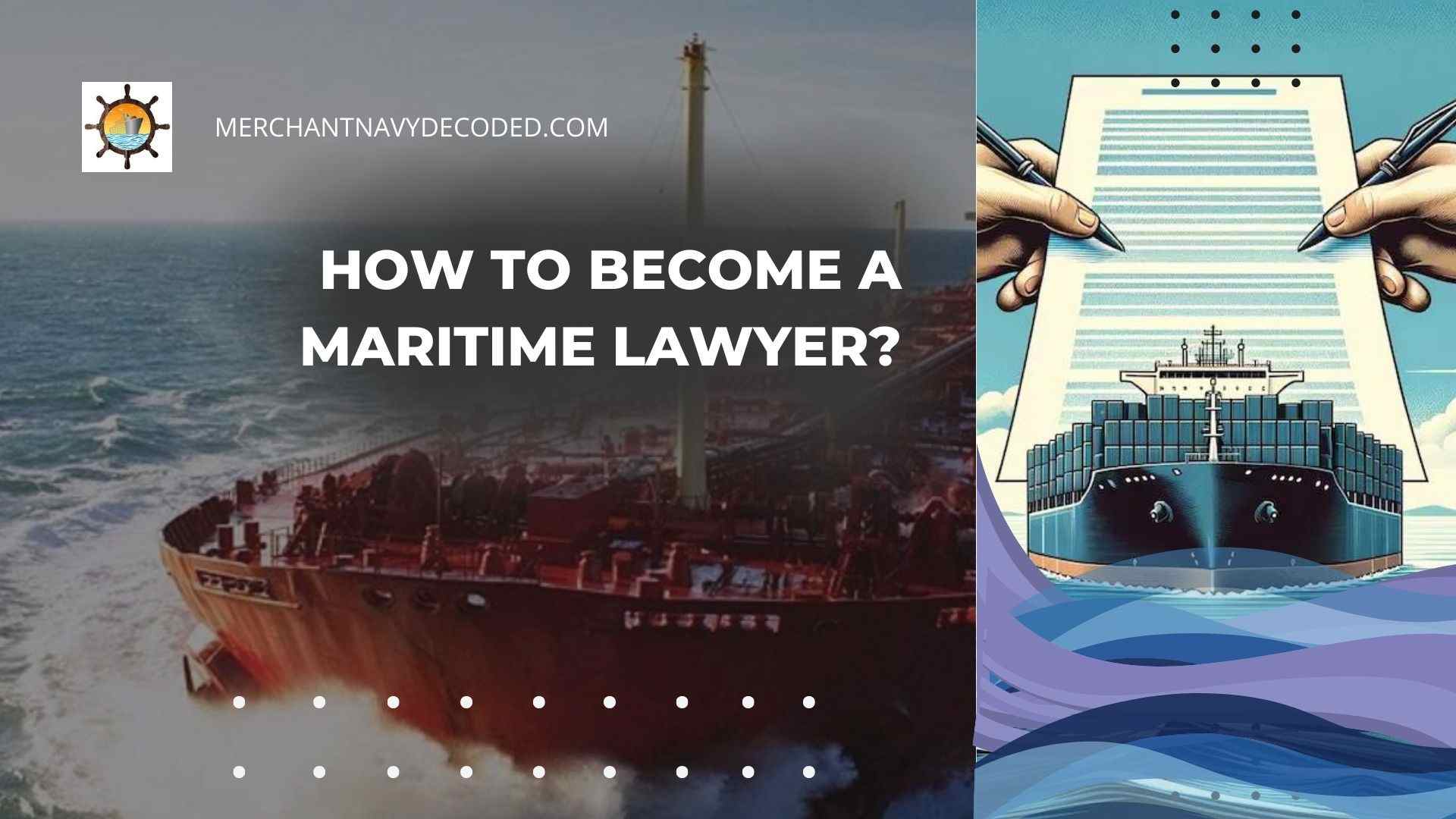Introduction
Maritime law, also known as admiralty law, is a distinct body of law governing nautical issues and private maritime disputes. Maritime lawyers play a critical role in navigating these complex waters, ensuring the smooth operation of maritime activities, and protecting the rights of individuals and businesses involved in maritime commerce.

History of Maritime Law
The origins of maritime law can be traced back to ancient times, with early forms of it seen in the Rhodian Sea Law from 900 BC and the Roman maritime code known as the “Lex Rhodia.” Over the centuries, maritime law has evolved significantly, influenced by various legal systems and the growing complexity of international trade. Significant milestones include the establishment of the International Maritime Organization (IMO) in 1948 and the adoption of the United Nations Convention on the Law of the Sea (UNCLOS) in 1982.
Role of Maritime Lawyers
What Do Maritime Lawyers Do?
Maritime lawyers specialize in laws and regulations related to the sea. They handle a wide array of cases, including personal injury claims, contract disputes, environmental compliance, and cargo issues. Their expertise is essential in ensuring that maritime operations adhere to international and domestic laws.
Importance in the Maritime Industry
The maritime industry is a backbone of global trade, and maritime lawyers are pivotal in maintaining legal order within this sector. They ensure that shipping companies, seafarers, and passengers are protected under the law, and they help resolve disputes that can arise in the complex maritime environment.
Types of Cases Handled by Maritime Lawyers
Personal Injury Cases
Maritime lawyers frequently handle personal injury cases involving seamen and passengers. These cases can range from injuries sustained on commercial vessels to accidents on recreational boats.
Contract Disputes
Contracts are fundamental to maritime operations. Lawyers in this field address disputes arising from charter agreements, shipbuilding contracts, and other maritime-related contracts.
Environmental Regulations
Environmental laws are stringent in the maritime industry. Lawyers help ensure compliance with regulations like the MARPOL Convention, which governs marine pollution, and represent clients in environmental litigation.
Cargo Disputes
Cargo issues, such as damage or loss during transit, are common in maritime law. Maritime lawyers work to resolve these disputes, ensuring fair compensation and adherence to legal standards.

Personal Injury Cases in Maritime Law
Common Types of Injuries
Injuries in the maritime industry can be severe, often involving falls, equipment malfunctions, or accidents at sea. Maritime lawyers advocate for the rights of injured parties, ensuring they receive proper medical care and compensation.
Legal Protections for Seamen and Passengers
Laws like the Jones Act provide robust protections for seamen, allowing them to seek compensation for injuries caused by negligence. Maritime lawyers are crucial in navigating these legal protections and securing justice for their clients.
Contract Disputes in Maritime Law
Types of Contracts
Maritime contracts include charter agreements, shipbuilding contracts, and cargo transportation agreements. Each type has its complexities, requiring specialized legal knowledge to handle disputes effectively.
Common Issues and Resolutions
Disputes may arise from breaches of contract, delays, or non-payment. Maritime lawyers use their expertise to negotiate settlements or represent clients in court to resolve these issues.
Environmental Regulations and Maritime Law
Key Environmental Laws Affecting Maritime Activities
Laws like the MARPOL Convention and the Clean Water Act have significant implications for maritime operations. Lawyers ensure that companies comply with these regulations to avoid penalties and protect marine environments.
Role of Lawyers in Compliance and Litigation
Maritime lawyers assist clients in developing compliance strategies and represent them in litigation if they face environmental violations. Their role is vital in balancing commercial interests with environmental protection.
Cargo Disputes in Maritime Law
Common Cargo Issues
Cargo disputes often involve damage, loss, or misdelivery of goods. These issues can have significant financial implications for shipping companies and their clients.
Legal Frameworks for Resolution
Maritime lawyers use laws like the Hague-Visby Rules to resolve cargo disputes, ensuring that all parties receive fair treatment and that liability is appropriately assigned.
How to Become a Maritime Lawyer
Educational Requirements
Becoming a maritime lawyer requires a law degree and passing the bar exam. Specializing in maritime law typically involves additional courses or certifications in admiralty law.
Necessary Skills and Qualifications
Key skills include strong analytical abilities, attention to detail, and a deep understanding of international maritime regulations. Practical experience, such as internships or work in maritime law firms, is also essential.
Challenges Faced by Maritime Lawyers
Complexities of International Law
Maritime law often involves navigating complex international regulations and treaties. Lawyers must be adept at understanding and applying these laws across different jurisdictions.
Navigating Multiple Jurisdictions
Cases can span multiple countries, each with its own legal system. Maritime lawyers must coordinate across these jurisdictions to effectively represent their clients.
The Importance of Specialized Knowledge
Maritime Law vs. General Law Practice
Maritime law is a specialized field requiring expertise beyond general legal practice. Lawyers in this area need to understand specific maritime regulations and industry practices.
Continuing Education and Specialization
To stay current, maritime lawyers must engage in continuing education and stay abreast of changes in international and domestic maritime law.
Prominent Maritime Law Cases in the USA
Landmark Cases and Their Implications
Cases like the Exxon Valdez oil spill and the Deepwater Horizon disaster have shaped maritime law in the USA. These landmark cases highlight the importance of rigorous legal standards and effective representation.
The Future of Maritime Law
Emerging Trends
Technological advancements, such as autonomous ships and blockchain in shipping, are transforming maritime law. Lawyers must adapt to these changes and address new legal challenges.
Impact of Technology on Maritime Law
Technology is reshaping the maritime industry, creating new legal issues related to cybersecurity, data protection, and automated systems. Maritime lawyers need to be at the forefront of these developments.

